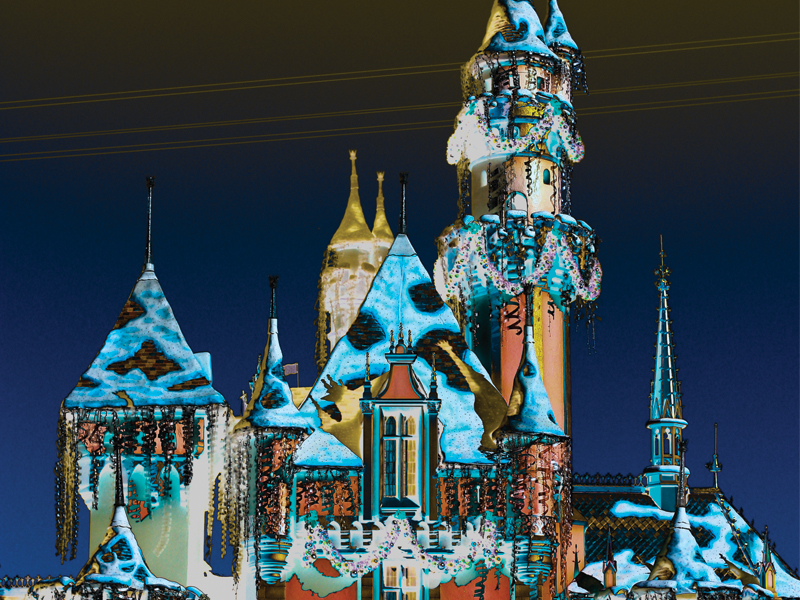
We attend university to learn, to expand our knowledge of how the world runs and to some extent, however bitter it is on the tongue, we learn how the world runs us. Being a media and cultural studies major myself, I’ve taken a good handful of classes that attempt to put into perspective the major corporations that run our lives. In the 1980s, 50 companies owned 90 percent of global media. Today, only five companies control 90 percent of the media we consume; from television to the radio, these companies have consolidated power and reduced the diversity of viewpoints in the media. This relatively new oligarchy of the media is becoming a more pressing issue as corporations become more powerful and we, the people, have our freedom of choice slip through our fingertips.
These five companies are General Electric, Viacom, Time Warner, News Corporation and the Walt Disney Company. The so-called “Big Five” control the mainstream media and they abuse their influence to “filter” media to protect their individual interests. You won’t see news stories exposing the horrible conditions of sweatshop labor in South America or Asia on any mainstream network like, say, ABC News, which is owned by Disney, when Disney itself has sweatshops in China, India and Haiti. The mainstream news and popular entertainment that surrounds us is merely a masquerade; a ruse to keep us distracted from the true distresses of our generation.
Awareness is the first step. We live in a world where the people who control our news, our entertainment and our social landscape would rather have us confined in a bubble and spoon-fed ideas of how the world is rather than risk living in a world in which the free exchange of ideas is encouraged. To the corporations, everyday citizens are nothing more than consumers whose only purpose is to spend money and keep the gears of the capitalist system turning. Ouch. A hard-won realization, but one that is necessary if we are to move away from exploitative passivity.
That is, if we are willing to move away from passivity.
Despite all of this — the corruption of the media we trust, the beast of capitalism, the exploitation of the nation’s people, after going to college and realizing these terrible facts about our current society — I still love Disney. I see Mickey Mouse and I swoon. I still want to take pictures with some sweaty guy in a Pluto costume while smiling like a 4-year-old. Even calling Disney the Walt Disney “Company” seems somewhat sacrilegious, as if it isn’t a company, but a dear, old friend. I can’t even claim ignorance because I know the capitalist intention of Disney and the corporations like it. Yet I seem content to look the other way, like Pinocchio, unable to fight the allure of Pleasure Island, I am defying my conscience in favor of the spectacle.
A part of me wants to rise up, start an intellectual revolution, and free minds of the shackles of corporate influence, but another part of me wants to kick back and binge-watch Disney cartoons. Why is Disney the most difficult corporation to accept as an agent of capitalism? It is as though my love for Disney is so strong and so connected with some sense of nostalgia that I am able to stomach their unsavory attributes. Or possibly, I am merely coerced, like the rest of the world, into thinking that they are not that bad. Their films, both new and old, can be considered classics to people of all ages, but the love may not stem so much from the content of the film, but the legacy and boundless resources available to Disney to create the idea of grandeur in their films. Still, the whimsical nature of their films and the entire Disney universe cannot be denied.
Disney, while insanely popular as it is, is gaining even more momentum. Disneyland ticket sales are at an all-time high, and “Frozen” is Disney’s highest grossing animated movie (not including Pixar films) since “The Lion King,” which came out 20 years ago. So the blind love for Disney does not seem to be letting up anytime soon. And while “Frozen” is a great film that challenged the stereotypes typical for Disney films and Marvel movies are usually pretty electrifying, by actively buying into these films, we add fuel to the wildfire. Especially with the Walt Disney Company’s purchase of Marvel Studios and their acquisition of ABC, it is apparent that their power and influence within American homes is expanding.
As difficult as it is to accept, if we are to truly send a message, we need to change our spending habits and shift our way of thinking to take into account our role in the corporate-run world. We have the ability, as consumers, to support the things we so choose. The corporations cannot endure without our support, but we can live without their influence. It is a dependent relationship, but we are the ones depended upon. Fight against what the corporations expect of you and keep in mind that individuality is not the only thing at stake, because while the rest of the world around us is crumbling, we cannot afford to look the other way while the corporations stuff their pockets. So, next time I see Mickey Mouse, I’ll give him a snarl.








